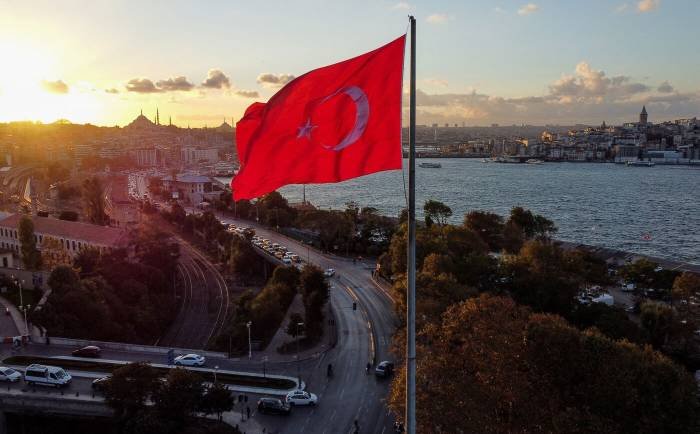
Why Turkey will dominate the decade ahead
As the world evolves, certain nations emerge as pivotal players on the global stage, and Turkey is set to capture significant attention in the decade ahead. With its strategic geographic location, youthful population, robust economy, dynamic political landscape, and cultural influence, Turkey is positioned to dominate not only its region but also contribute substantially to global affairs. This article delves into key factors contributing to Turkey's ascendancy and why it is poised to play a crucial role in the next ten years, CE Report reports.
Strategic Geographic Location
Turkey's unique location straddles Europe and Asia, making it a vital crossroads for trade, energy, and diplomacy. It controls access to the Bosporus Strait, a critical waterway for international maritime trade, connecting the Black Sea to the Mediterranean. This strategic position enables Turkey to function as a bridge between the East and West, facilitating economic exchanges, political dialogues, and cultural interactions. In an era characterized by globalization, Turkey's geographical significance ensures that it will remain a focal point for international relations and commerce.
Demographic Advantages
With a population exceeding 85 million, Turkey boasts one of the youngest demographic profiles in Europe. A significant portion of its citizens is under the age of 30, providing a youthful workforce that is innovative, adaptable, and technologically savvy. This demographic dividend is set to drive economic growth and bolster Turkey's position in sectors like technology, manufacturing, and services. Moreover, as many developed nations grapple with aging populations, Turkey's youthful demographic will serve as an attractive asset for foreign investment and labor, enhancing its competitive edge.
Economic Growth and Resilience
Turkey's economy has shown remarkable resilience in the face of global challenges, including financial crises and the COVID-19 pandemic. The country has been steadily diversifying its economic base, investing in industries such as textiles, automotive, aerospace, and technology. The government’s emphasis on infrastructure development, tourism, and renewable energy is expected to fuel sustained economic growth over the coming decade.
Additionally, Turkey’s strategic partnerships, especially with its regional neighbors and key players in Europe and Asia, enhance its economic standing. The establishment of trade agreements and participation in multilateral organizations like the G20 positions Turkey as a significant player in global economic discussions. As emerging markets seek new alliances, Turkey's economic resilience and growth potential will become increasingly attractive.
Political Influence and Regional Power
Turkey's geopolitical position has historically granted it considerable influence in regional politics. In recent years, Turkey has sought to assert itself as a leader in the Middle East, the Caucasus, and the Balkans. Its active involvement in resolving regional conflicts, hosting diplomatic talks, and engaging in peace-building initiatives reveals its ambition to become a principal mediator in international relations.
Furthermore, Turkey's relationships with major global powers, including the United States and China, are evolving. Navigating this complex landscape will enhance Turkey's role in global governance, as it endeavors to act as a conduit for dialogue among diverse cultures and ideologies. By cultivating these alliances, Turkey will become increasingly central to discussions on security, trade, and climate change in the coming years.
Cultural and Soft Power
Turkey possesses a rich cultural heritage that endears it to various nations. From its historical landmarks, such as Hagia Sophia and Cappadocia, to its vibrant arts, cuisine, and hospitality, the country offers a distinctive cultural identity that resonates with people worldwide. The rise of Turkish cinema and television series has also captivated international audiences, helping to project Turkish culture and values beyond its borders.
In a world where soft power is becoming increasingly relevant, Turkey's cultural appeal can significantly enhance its diplomatic relations. The promotion of cultural exchanges, tourism, and educational partnerships can contribute to Turkey's influence as it positions itself as a bridge between East and West.
Conclusion
As the 2020s unfold, Turkey stands at a crossroads of opportunity and challenge. Its strategic geographic position, youthful demographic, resilient economy, expanding political influence, and cultural richness suggest that Turkey will be a dominant force in the decade ahead. While challenges remain, including economic instability and regional tensions, Turkey's capacity for adaptation and growth will play a critical role in its emergence as a leading global player. As we move forward, the world would do well to pay close attention to Turkey and its dynamic evolution on the world stage.
























